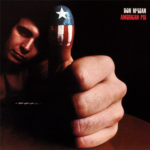loading...

by Danny Byram | Dec 27, 2019 | Church Leadership, Gratitude, Happy New Year

With the dawn of each new year, the English-speaking world has a fascinating tradition. We stay up ‘til midnight, count down our time zone’s version of midnight, lift a glass of bubbly, kiss our sweetie, toast the new year, and sing a circa 1788 Scottish song that none of us understands, except maybe Scottish pastor Alistair Begg.
“Should auld acquaintance be forgot, and never brought to mind?
Should auld acquaintance be forgot, and auld lang syne!
CHORUS: For auld lang syne, my dear, for auld lang syne; We’ll drink a cup o’ kindness yet, for auld lang syne.”
Translation: “auld lang syne” means “days gone by.” In American English, the final line would render “we’ll drink a cup of kindness, to remember days gone by.”
What is implied in this auld song is that we are encouraging one another to remember the good times. Well, sure! Who wants to dredge up the mistakes of the past? However, the Bible assures us there is valuable perspective to be gained when we choose to recall both: the good and the not-so-good past. I experienced this truth when visiting a church in Virginia Beach that started with a bunch of surfer dudes…

SURFER DUDES AND BABES
This “surfer church” was birthed from a tiny group of Christians befriending surfer dudes and babes on the beach. Through the simplicity of friendship, young, tanned, stoned beach people encountered Jesus and a church was born, now a very large church.
During my visit to one Sunday School class, I met a professional-looking married couple. Their story: Decades ago, after high school, they lived together in a tent on the beach. He surfed while she created and sold seashell jewelry to buy food, booze, and pot. One day, someone shared Christ with them and their lives radically changed.
After the Sunday school class ended, we filed into the main sanctuary for corporate worship. As we sang “Amazing Grace,” the familiar lyrics rolled out of my mouth without a thought: “Amazing grace, how sweet the sound, that saved a wretch like me.” Yet I noticed as this couple sang, tears streamed down their faces. After the service, I asked them why they wept during Amazing Grace. They answered, “We will never forget how wretched our lives were before we met Jesus.”
That is the power of remembering “days gone by” (“auld lang syne”).
The Apostle Paul reminds us of how wretched we were before we knew Christ: “slaves of sin, children of darkness, deceived, tossed about, confused, enemies of God” (Ephesians 5). Such a list tempts us to ask, “But isn’t that negative? Why bring up those ‘days gone by?’” I understand. Recalling my own wretched past can cause me to pray for amnesia. Jesus’ visit to Simon the Pharisee’s home (Luke 7) is a bold illustration of the dangers of such amnesia:
“When one of the Pharisees invited Jesus to have dinner with him, he went to the Pharisee’s house and reclined at the table. A woman in that town who lived a sinful life learned that Jesus was eating at the Pharisee’s house, so she came there with an alabaster jar of perfume. As she knelt behind him at his feet weeping, she began to wet his feet with her tears. Then she wiped them with her hair, kissed them and poured perfume on them. When the Pharisee saw this, he said to himself, “If this man were a prophet, he would know what kind of woman is touching him!”
Jesus, knowing his thoughts, said, “Simon I have a story for you: two people owed money to a lender. One owed 500 and the other 50. Neither of them could pay, so the lender forgave the debts of both. Now which of them will love him more?” Simon replied, “I suppose the one who had the bigger debt forgiven.” Jesus said, “Correct. Do you see this woman? I came into your house and you gave me no water for my feet, but she wet my feet with her tears and wiped them with her hair. You did not greet me with a kiss, but this woman has not stopped kissing my feet. You neglected the courtesy of oil on my head, but she has poured perfume on my feet. Her sins – which are many – have been forgiven – so she has shown me much love. But whoever has been forgiven little, loves little.”
Simon the Pharisee was respected, wore fine robes, probably expensive rings, had a nice home with servants. But somewhere in his prosperous religious work, he lost perspective. He failed to remember he was as needy and sin-filled as the woman at Jesus’ feet. Kinda like me, when I sang Amazing Grace without a thought of its meaning.
The Apostle John’s word to the church in AD 95 is sobering to us religion-brokers in the 21st century: “You (church goers – church staffers) say: ‘I am rich. I have everything I want. I don’t need a thing.’ And you don’t realize that you are wretched, miserable, poor, blind and naked.” (Revelation 3)

CAN WE LISTEN TO SIDE “B” NOW?
Fortunately, there are two sides to remembering. Paul also lists who we are now in Christ: “joint-heirs, redeemed, children of light” – the list goes generously on. Remembering our identity can motivate us to adjust our behavior today in order to have no regrets in our future yesterdays.
So, on New Year’s Eve, let’s “drink a cup of kindness” to remember “days gone by” so we never forget how rescued we are from ourselves, our damaged legacies and the superficiality of life without Christ. Whether we sing “Auld Lang Syne” or “Amazing Grace,” let’s weep with gratitude that He has saved wretches like us. Happy New Year!


by Danny Byram | Jan 16, 2019 | Church Leadership, Contemporary, Gratitude, Leadership, Liturgical, prayer, Worship, worshipmusic

Downloading tracks. Downloading charts. Finding the right song in the right key. Shooting videos for social media. Setting rehearsal time. Changing rehearsal time. Your drummer cancels on Friday. Lead female vocalist gets a throat infection. The smoke machine breaks down at stage left. Endless chase of the latest gear. Planning time with the team. Meeting with pastoral staff. Budget cuts. Time restraints within the service. Cut a song. Cut two. Your prepared remarks between songs were criticized in the staff meeting. Don’t say anything anymore – just do the music. You’re told: You’re not a pastor, just a musician.
Congregants don’t see these frustrations behind the scenes. They come and watch each week as you pull it off seamlessly like a pro. Yet you feel you have to hold it all inside. Keep it together. The pressure and frustration of what you once felt was your calling has become a job – or worse, a machine; predictable, produced, even pretentious. You are noticing you haven’t been alone in God’s presence for quite a while. You catch a prayer when you can. Your fuse is becoming shorter. Things that used to not bother you, bother you. That “sin that so easily besets you” emerges again. You confess and move on but it comes back anyway.
Sound familiar? Where is God in the worship grind? What is described above used to be exclusive to larger churches. Now, with social media expectations – a worship-music industry driving its images and products – and church growth formulas nipping at our heels – is it any wonder why churches of 200 or less are experiencing the grind as well?
Jeremiah 33:3 serves as a benchmark to busy activity, massive scheduling, goal setting, and strategic planning. “Call to me and I will answer you, and I will show you great and mighty things which you do not know.” (NASB). So, what is it we don’t know, that we need to know? Our gear is great, our media is moving, our following fantastic, our image immaculate, and our hearts are humble!
Consider the context of Jeremiah 33:3. For the first 32 chapters, God is using Jeremiah as His mouthpiece to speak prophetic words to the people of Israel and their leaders. Though the book is not laid out chronologically, it is apparent this far into the story that Jeremiah is still in need of knowing “great and mighty things” which he hasn’t yet discovered. God requires His “mouthpieces” to call to Him, and then listen.
Finding God in the worship grind will either happen by our own choice or by His choice. God will be found because we are awed by His sacredness – or – we are stopped in our tracks because the gears of the grinder have come to an abrupt halt. I have experienced both. I prefer the former not the latter. Believe me, you do too.
Recommended books: “Letters To The Church” – Francis Chan. “Abba’s Child” – Brennan Manning
Photo by Ben White on Unsplash

by Danny Byram | Nov 25, 2018 | Advent, Christmas, Church Leadership, Gratitude, Leadership, Surprise, Worship

Do you enjoy surprises? Some love them, others not so much. For example, those of us who are married realized, at some point, we married our opposite. During courtship, engagement, and the honeymoon we are interested in the same activities and respond alike. This “opposite-discovery” is not fully revealed until after a few years of living together. Right? That’s called a “surprise.”
Those who enjoy being surprised prefer the fresh unpredictability surprises brings to life. Surprises remind them that someone was thinking specifically of them in order to pull off the surprise. On the other hand, those who dislike being surprised enjoy the routine of knowing what’s coming. Predictability gives them a feeling of security because the world is ever changing. Receiving a gift tells them the giver had their best interest in mind because the gift was exactly what they asked for.
From Genesis through the New Testament the “God-surprises” are everywhere: The great flood of Noah; Sarah’s birthing her baby boy Isaac in her advanced age; Joseph’s journey from brat-brother to slave to prisoner to second-in-command of Egypt; young Mary’s virgin pregnancy. The list goes on…
As surprising as God’s activities were throughout scripture, He always chose to drop clues as to what He would be up to. Those who were watching and listening were ready for the surprise when it came. Those who chose not to hear or heed the clues were taken completely by surprise.
The biggest surprise in human history is annually celebrated during the season of Advent and Christmas. All the clues for this surprise were given centuries prior through Israel’s prophets. But to those who were not ready and those who are still not ready, this story is the grandest surprise of all time: A baby boy is the Son of God. Surprise! Born in obscurity and poverty. Surprise! A half Jewish monarch threatened by this surprise kills all baby boys two years and under, mimicking the Egyptian Pharaoh at the birth of Moses. Surprise! The gifts left by the Magi would possibly provide sustenance for the holy family as they flee to Egypt to save the boy’s life. Surprise! The boy grows up, becomes the most quoted carpenter-turned-rabbi of all time. Surprise! He willingly offers His life to redeem the world’s sins and invite both Jews and Gentiles of all races, locations and religions to join themselves to God the Father through Him. Surprise! He becomes the only person in history to be seen walking, talking, eating broiled fish, appearing and disappearing in a full fleshly body after he dies. Surprise!
Whether we enjoy surprises or not, the Bible assures its readers God’s surprises will continue. The Old Testament Jews called them prophecies. The Apostle Paul called them “birth pains of what is to come.” (Romans 8:18-25)
Will God’s surprises rock your life? If we are ready, listening and aware, we may not be as surprised as we think.
Follow Danny on Instagram, Facebook, Twitter, YouTube, Soundcloud
Photo by Ben White on Unsplash

by Danny Byram | Nov 10, 2018 | Church Leadership, Gratitude, Leadership, patriot, veterans

In 1877 the tune “Mary Had A Little Lamb” was aurally reproduced from the first phonograph. Two years later the same man created the light bulb. Though American inventor Thomas Edison was one of a kind, the fact that he was an American is not what made him exceptional. Throughout history there were scores of great and lasting inventions from French, German, Danish, Dutch and English minds. Inventors are not exclusively American. So what is?
Columnist George Will quotes a participant in NATO’s 1949 founding as saying the alliance’s purpose in overseeing post WW2 European protection was to keep “the Russians out, the Americans in…” The assumption was that the United States was not interested in maintaining its 1944 D-Day invasion to eventually make Europe its 51st state. After 70 years one would think the world would get the message: US military installations placed in Europe remain to discourage ambitious imperialists from trying their hand at state building. Vladimir Putin’s recent return to Soviet invasion tactics assumes the opposite of the NATO founder’s statement: “If America is out, the Russians are in.”
Is America out? Has America resigned its post WW2 role as the leading voice of freedom for other freedom-seeking nations of the world? How many years will it take to convince international critics, and the ones within our own borders, that bases in foreign countries exist to protect those countries and our interests from the “Putins” of coming generations? If 70 years of our European military presence hasn’t convinced these proponents of “American pull-back” – perhaps their view is simply ideologically driven denial. Pull back the US from leading the world and guess what you get in return?
What makes America exceptional is in its founding documents. “We hold these truths to be self-evident; that all men are created equal; that they are endowed by their Creator with certain inalienable rights: (the rights of) life, liberty and the pursuit of happiness.” America is exceptional because of its inherent belief in a Creator who endows these rights to all. Those rights are not earned but are assumed regardless of race, age or creed.
Therefore those rights must be protected from those who seek to remove them. Since we are the most powerful and wealthiest nation of the world, as well as the global rally-point of the past 238 years for all who seek to live by these rights, it is logical that the USA is exceptionally cast into the role of “leader of freedom.” Even more exceptional is the fact that there is no other nation who has earned that job description.
There will always be those who oppose freedom. But those who live within its warm cloak, who tout the adage that their freedom was ill-gained, unfounded or of little value live under a unique umbrella. Their right to denial is also assumed and even protected by those who vehemently disagree.
What makes America exceptional is what made Thomas Edison exceptional. His inventions were created within a culture of freedom: freedom of expression, freedom of ownership, freedom of financial reward commensurate with exceptional genius; opposed to the state owning his intellectual property. Edison fulfilled his role as a creative leader because he was living and creating within a free culture of exceptionalism. An exceptional nation nurtures exceptional citizens.
When America turns from its fundamental belief of exceptionalism, it loses the moral right to protect others from those who steal freedom. Without the American glue that holds freedom-seeking peoples together, the cohesiveness of freedom’s bond is lost. Chaos is the result. Those who don’t believe in American exceptionalism, yet choose to live in freedom because of it, will be the first to blame America for that which is in chaos.
On Veteran’s Day we owe thanks to those who are at the forefront of freedom’s frontiers, at home and abroad. They are the exceptional of the exceptionals.
“If the foundations are destroyed what can the righteous do?” Psalm 11:3
Photo by Luke Michael on Unsplash

by Danny Byram | Oct 8, 2018 | Church Leadership, Gratitude, Leadership, Worship

I strolled near a golf course one morning, enjoying some solitude. The blue sky, well-kempt greens, chirping birds, and squeaking squirrels made for a pristine setting. As I sat on a bench to quietly read, I was interrupted by a sound out of character to the morning. A large falcon swooped down to perch high atop a nearby pine tree. Its wings cut through the morning air with an ominous swish. His song was not a melodious chirp, but a high pitched cry announcing his arrival. There he stood, head moving from right to left, back and forth. He stretched his wings and pulled them back into himself. He paused, waited, observing the surroundings.
Just then came four golfers, talking, looking for their golf balls, setting up for their next shots of play. Two of them walked directly under the falcon. They had no awareness of his presence above them. The falcon was very aware of theirs. He watched their every move and was privy to their conversation. I watched from the distance, wondering if the falcon would fly off, spooked by their noise. Perhaps he knew taking flight would have drawn attention to himself. The golfers played their shots, continued their conversations and moved on, unaware of the bird of prey’s presence.
As I reflected on the drama of this moment, it reminded me of 2 Chronicles 16:9: “For the eyes of the Lord move to and fro throughout the earth…” As God-followers, we are aware of His ability to see every move, hear every word, and know every intent of our hearts. Those traits can be intimidating until we acknowledge the latter half of that verse: “…that He may strongly support those whose heart is completely His.”
While God is watching us like a falcon, that verse reminds us of the reason He does so: to strongly support us. Our humanness lies, trying to convince us God is watching in order to swoop down, disrupt our lives, steal our golf cap or scratch us with his talons. But the scriptures say differently: “We know that God causes all things to work together for the good of those who love Him and are called according to His purpose.” “If God is for us, who can be against us?” (Romans 8:28, 31).
As I walked away from that moment, I asked myself: “Am I like the golfers: unaware, preoccupied, or perhaps judging God’s intentions?” When lies try to grip me, His true character quietly resonates through the scriptures, when I stop and ponder them.
King David poetically articulated God’s falcon-like presence:
“You have searched me, Lord, and you know me.
You know when I sit and when I rise;
you perceive my thoughts from afar.
You discern my going out and my lying down;
you are familiar with all my ways.
Before a word is on my tongue
you, Lord, know it completely.
You hem me in behind and before,
and you lay your hand upon me.
Such knowledge is too wonderful for me,
too lofty for me to attain.
Where can I go from your Spirit?
Where can I flee from your presence?
If I go up to the heavens, you are there;
If I make my bed in the depths, you are there.
If I rise on the wings of the dawn,
If I settle on the far side of the sea,
even there your hand will guide me,
Your right hand will hold me fast.” Psalm 139:1-10 NIV
Today, I want to be aware that God’s falcon-like eyes are finding me because I am His. What a comfort that this magnificent God is watching me simply because He wants to support me. Yet another reason He deserves our worship!

by Danny Byram | Sep 2, 2018 | Church Leadership, Gratitude, Leadership, Worship

Imagine being invited to dine at the most influential and wealthiest person’s home in your city. As you try to get over the fact you were invited at all, you’d probably be curious: why was I invited? After you are convinced this is real, you prepare for the big evening. Clothes: check. Teeth brushed: check. Car washed: check. Manners: check.
The big night is here! You are greeted at the door by a butler and escorted in. Suddenly the host appears. He and his wife are thrilled you have come. Something is awry as you look around. You are the only one invited. The meal is served and it is perfect. The conversation is all about you: your dreams, your goals, your marriage, your kids, your family. After dessert (a perfect chocolate mousse cake with raspberry puree!), everyone shares their favorite song, poem, book, or movie. The evening ends with an invitation to come again. It was perfect. The next day what do you do? (Hint: what did your mother teach you?) Write a “thank-you” note!
God has invited us to an incredible feast. Jesus, His Son, has opened the door to the parlor and greets us like an excited host. Through His incredible gift of love, grace, mercy and redemption He has made it possible for all who desire, to come and partake of His Father’s feast. Once we walk through the door (John 10:7) we begin to experience a meal of love, joy, peace and fellowship that makes anything else seem like a quick grub fest at a greasy spoon. So what then is our response to God? (Hint: what did your mother teach you?) Worship, no matter the style, culture or location, is our thank-you note to God.
In Luke 19:37-38 Jesus is journeying toward Jerusalem and a multitude of His followers began shouting “Blessed is the King who comes in the Name of the Lord! Peace in heaven and glory in the highest!” The text reveals why they were shouting: they began to praise God for all the mighty works they had seen. What mighty works have you seen? What miracles have happened in your life? What have you prayed about lately that you have seen the answer revealed?
As we gather to worship, how ever we worship, our songs – recitations – sacraments – prayers – rejoicing – praying – weeping – are our “thank-you” notes to God. Does He want to be thanked? (See Luke 17:11-19). Try it, and watch your heart enlarge and His blessings flow.






















